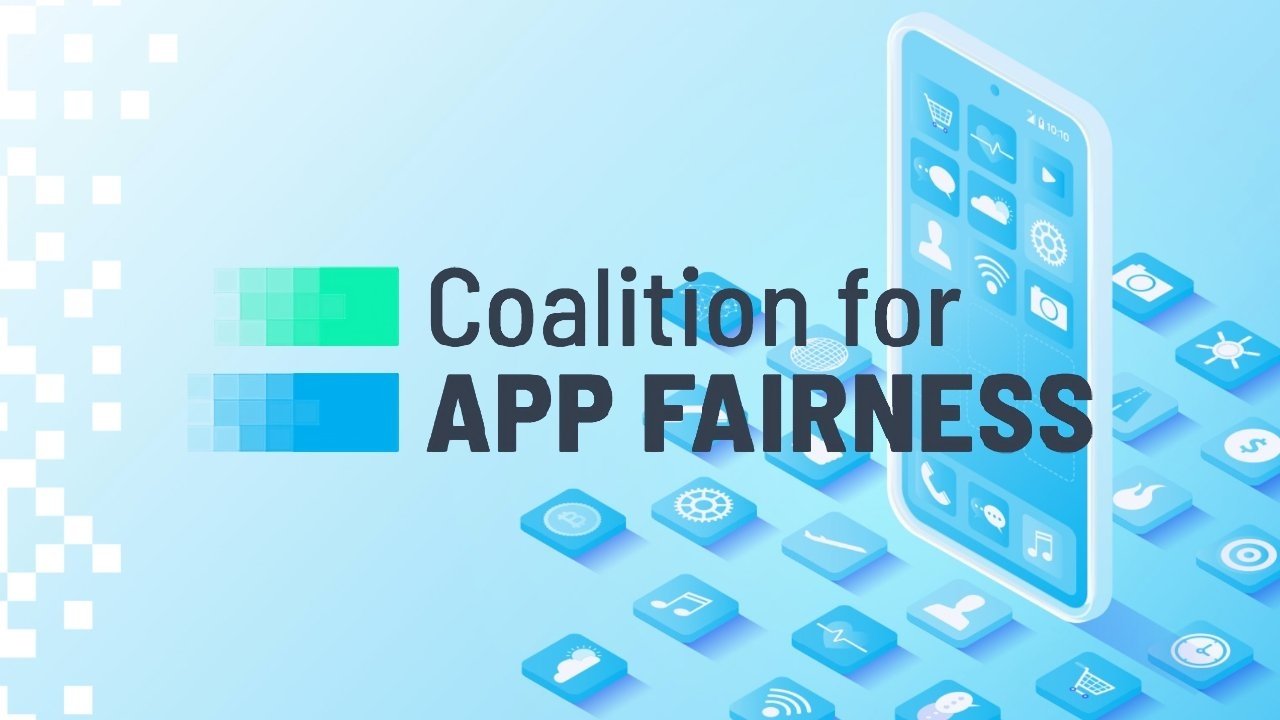The Coalition for App Fairness is keen not to be viewed as a litigation vehicle for Epic Games, a profile reveals, one that details some of the key figures behind the group's creation and workings.

Apple's intense antitrust scrutiny over its App Store policies were exacerbated by the Epic Games lawsuit, with Apple only getting a reprieve from an order over anti-steering measures on December 8. Despite the stay on the order, Apple continues to be under pressure from critics on the matter.
One of its main opponents is the Coalition for App Fairness, a group formed by Tile, Spotify, Epic, and others wanting to take Apple down a peg or two. In a profile by Protocol, the various members of the Coalition are said to work with a difference of opinion on how the group should operate.
The beginnings of the group involved Tile general counsel Kirsten Daru briefing the House antitrust subcommittee about Apple's pushback on Tile's hardware permissions. Daru was advised by the panel to go public, which led to a field hearing with CEO CJ Prober calling for Congress to make "a level playing field" for developers.
The hearing caused more developers to go public, along with causing more bipartisan pressure on Apple, with Daru encouraging other firms to join the Coalition for App Fairness in September 2020. Since then, the group has grown to 60 members.
"There was one thing that really unified us. We all were completely dependent on the App Store," said Proton public policy and government affairs lead Jurgita Miseviciute. "This was really our gateway to customers, and Apple, with pretty much one click, could really destroy our business."
Epic planned spending "$80K - $100K" on the Coalition's launch, in what was considered an attempt to remove its image as a "not sympathetic" player by working with smaller firms.
The Coalition, however, believes it isn't a litigation vehicle for Epic during its lawsuit. Report sources say the founding members were keen to avoid that appearance, and that its answer to that problem was to lay out its principles on competition and fairness.
Since its founding, the group has occasionally suffered a split in opinion on how the Coalition should proceed. A person familiar with the internal workings said some members wanted to be more aggressive, while others preferred a softer approach.
In terms of how the group operates, it is said to split roles up to specific companies based on their expertise. For example, some used their relations with international governments, while others handled strategy and communications.
Lobbying has become the Coalition's main tactic, working with state representatives on bills to require third-party payment systems to be used by Apple and other big platforms. Lobbyists included one who ran one of Sen. John McCain's reelection campaigns, while others had ties to former Gov. Andrew Cuomo.
So far, states have failed to pass any bills targeting the App Store, but it has also had an impact in other countries. The Coalition worked in November to create a conference in South Korea, one that was attended by the speaker of the Korean National Assembly, months after a bill was passed over app store regulation.
The state-based lobbying is thought to be a weak spot for Apple, with the iPhone maker declining to make significant financial contributions to political parties or candidates. Despite spending some $7 million in 2020 on federal lobbying, it is thought by Washington insiders that Apple would jump to support existing issues it has an affinity with, but would be less likely to organize its own effort.
While report sources believe Apple's lack of political donations is a vulnerability, those within the Coalition still feel Apple is a tough and well-resourced foe. In one example given, Apple reportedly threatened to give up on economic development plans to combat one bill in Georgia, and even managed to get the state attorney general's office on its side.
